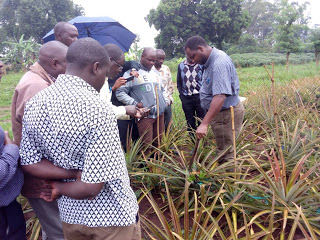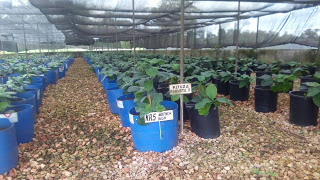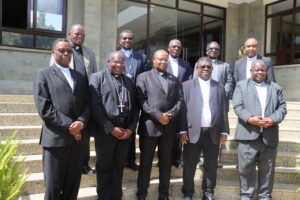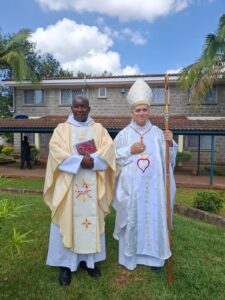UGANDA: Diocesan Farm Managers undergo six-month training on Agri-entrepreneurship practices

In an effort to enhance crop production and promote self-reliance in the Dioceses, Diocesan Farm Managers are undergoing a six-month training on Agri-entrepreneurship practices through practical and theoretical skills training to enhance their technical know-how in helping run the Diocese’s farm lands.

The Agricultural Initiative program, which kicked-off in January 2018, will be underway until June 2018 under the sponsorship of the Pontifical Mission Societies (PMS) of the United States of America (USA) in collaboration with the PMS-Uganda.
According to the Monitoring and Evaluation Officer of the Agricultural Initiative Program, PMS-Uganda, Angella Namugenyi, the main objective of this initiative is to empower Diocesan Farm Managers with modernization skills and knowledge of managing their farms towards self-reliance and to provide agricultural loans to Church Institutions.
“We are very grateful to PMS-USA for their partnership in this program. This Agricultural Initiative Enterprise aims at giving agricultural loans to managers of Catholic Farm Institutions. In addition to the loans, the initiative will empower managers into financial and business skills to handle and manage agricultural loans adequately and become self-sufficient in producing food for their own use,” she said adding that this is a fundamental starting point for improved food security and increased food production in the country.
She reiterated that self-reliance is the way forward for the Church in Africa. “All Episcopal Conferences in the continent have continuously emphasized the importance of Church institutions being self-reliant. Some have issued pastoral letters on the theme of self-reliance, while others have explicitly included it in their institutional goals.”

The training methodology includes presentations, discussions, group work, peer sharing, business field assignments and coaching. Some of the topics for discussion are: the technical aspects of standard farming operating procedures, foundations of sustainable agricultural, management of livestock and crops, land preparation, seed production and irrigation regulations. It is a practical, hands-on approach in the field which will enable farmers to learn the intricacies of plant growth, harvesting, seed extraction, processing and packaging.
The six-month Agricultural training is facilitated by Agricultural and Business Experts from National Agricultural Research Organisation (NARO) and Uganda Martyrs University.
The Agricultural Initiative is a result of the address by the Holy Father to the Food and Agricultural Organization (FAO) delegates who met in Rome in October 2013 on Food insecurity in Africa and need for intervention. The Pontiff said that Africa is very rich with resources and there was need of assisting them to have a permanent solution to the recurrent famine and drought rather than interventions of the humanitarian response.
In November 2013, Fr. Andrew Small, OMI, PMS National Director of the USA picked-up the Popes appeal and invited the PMS National Directors of Africa seeking to establish availability of land and ownership by the Catholic Church. Since then, the initiative has been implemented in different African nations including AMECEA countries with Kenya being a success case study.
~End~
By Jacinta W. Odongo; Media Officer, Uganda Episcopal Conference


